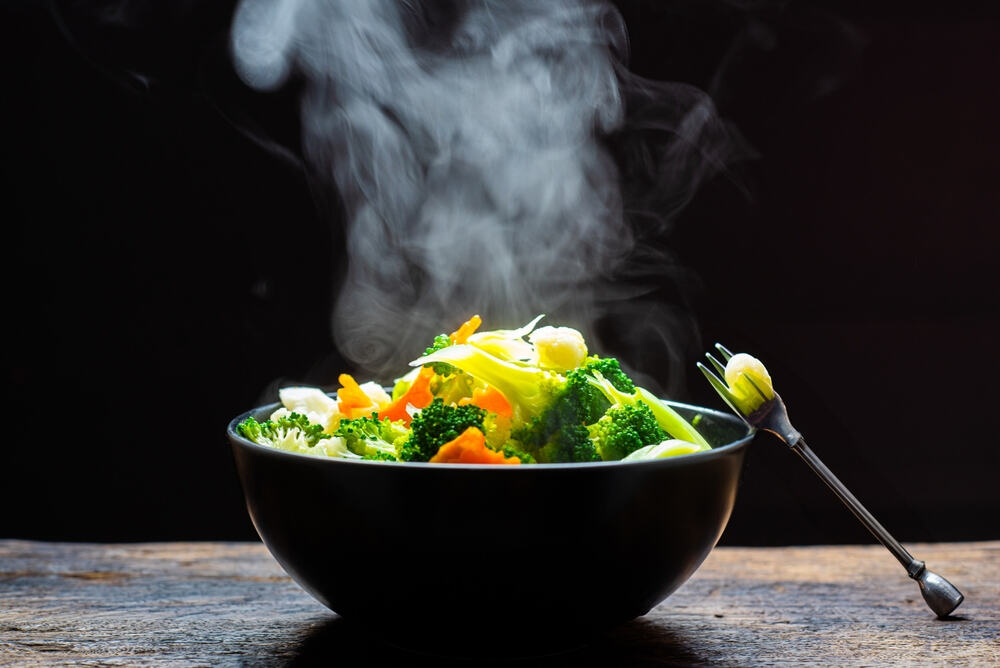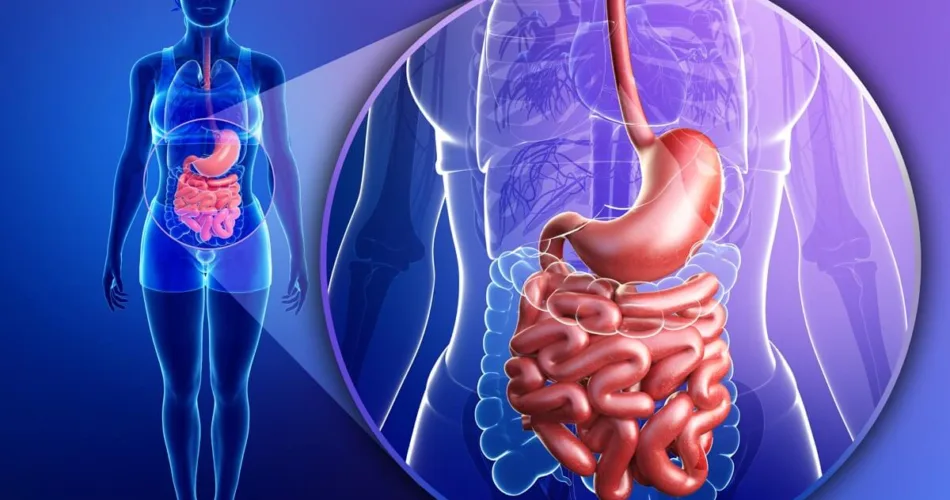“The right foods are key remedies for a sensitive stomach.”
If your stomach often feels wrong, you might have a sensitive stomach. Although “sensitive stomach” is not a medical term, it could be due to various health issues.
Mascha Davis, a registered dietitian-nutritionist in Los Angeles and the author of Eat Your Vitamins, explains that various health issues like irritable bowel syndrome (IBS), Crohn’s disease, GERD, or celiac disease can lead to digestive problems, causing someone to have a sensitive stomach.
There are various reasons why you might have a sensitive stomach. Food allergies or intolerances are common causes, and lifestyle factors like high stress, not eating enough fruits and vegetables, and taking certain medications such as NSAIDs, antibiotics, weight loss medications, and birth control pills can also contribute to a sensitive stomach.
How Common Is Sensitive Stomach?

More people have a sensitive stomach than you might realize. While we don’t have specific data on how common it is, many diseases and conditions causing sensitivity affect millions of individuals.
For example, in the United States, about 20 million people have food allergies or intolerances. Irritable Bowel Syndrome (IBS) impacts up to 45 million Americans and around 2 million suffer from celiac disease. These are just a few of the various reasons for having a sensitive stomach.
Additionally, acute problems like a norovirus infection can lead to stomach pain and nausea, affecting approximately 685 million people globally each year, according to the Cleveland Clinic.
To find out if you have a sensitive stomach, Maggie Michalczyk, a dietitian in Chicago, says common complaints include bloating and indigestion. If it’s a sudden problem like a virus, you might also experience symptoms like nausea, vomiting, loss of appetite, stomach pain, cramps, and diarrhea, according to the Cleveland Clinic.
What Helps a Sensitive Stomach?
The best way to deal with a sensitive stomach depends on what’s causing the problem. Davis advises finding the root cause because if you don’t know why your stomach is sensitive, any solution will only provide temporary relief. For instance, if stress is the issue, your doctor may suggest learning stress management techniques. Anxiety and worry can disrupt the delicate balance of digestion. Consider scheduling an appointment with a specialist for personalized advice on managing your stomach issues. Davis suggests collaborating with a dietitian and gastroenterologist who specialize in gastrointestinal issues. They may recommend tests like blood work, GI map testing, an elimination diet, and food allergy testing to tailor a strategy for your symptoms.
After consulting with your healthcare professional, you might receive guidance on adjusting your diet to ease stomach discomfort, recommended foods can vary based on the specific cause of your sensitivity. However, certain foods and drinks are generally known to support digestive health and could be beneficial for your situation.

The Best Foods and Drinks for a Sensitive Stomach
Here’s a guide to some of the best foods and drinks to include in your diet when you have a sensitive stomach:
1.Food: Kimchi (and Other Fermented Foods)

Eating fermented foods like kimchi, a traditional Korean dish made from fermented cabbage, is good for your gut. According to UMass Chan Medical School, fermented foods provide probiotics, which are beneficial live bacteria. These probiotics help keep harmful bacteria in check, as explained by the Cleveland Clinic. If you have general digestive issues, adding more probiotic foods such as kimchi can balance your gut micro biome, leading to better digestion. Other recommended probiotic foods include yogurt, fermented veggies, miso and kefir.
2.Drink: Herbal Teas

Feeling a bit queasy? It’s time to make you a cup of tea. According to Michalczyk, having peppermint and ginger tea can help ease stomach discomfort. Ginger, in particular, shows promise in relieving nausea related to morning sickness, chemotherapy, or medications. Harvard Health Publishing adds that ginger tea contains small amounts of vitamin B3, B6, potassium, iron, and vitamin C.
If you’re not a fan of tea, simply inhaling the scent of peppermint may also reduce feelings of nausea. Staying hydrated is essential for preventing an upset stomach. A study found that dehydration can lead to severe abdominal pain. So, grab a tea bag (avoid plastic ones, as per a study in March 2023), or use loose leaves, relax, and sip on some herbal tea to stay hydrated and soothe your stomach.
3.Food: Pears

Fiber is great for your gut, and pears are a good source of it. According to the USDA, one medium pear is an excellent fiber source. Pears contain a special type of fiber called pectin, which, according to the Cleveland Clinic, not only improves digestion but also encourages the growth of good bacteria in your colon.
For those dealing with constipation, adding pears, prunes, and dates to your diet might help with bowel movements. Pears also offer other health benefits, such as stabilizing blood sugar and reducing the risk of type 2 diabetes, as mentioned by the Cleveland Clinic. A study in the journal Food & Function found an 18 percent lower risk of type 2 diabetes with the consumption of apples and pears.
However, if you have IBS and follow a low-FODMAP diet (avoiding certain sugars causing intestinal issues), pears might not be suitable. Johns Hopkins Medicine suggests opting for fruits like grapes, oranges, and strawberries instead.
4.Drink: Kefir

This drink, similar to fermented yogurt, has about 12 probiotic strains that can be beneficial for your gut, as stated by the Cleveland Clinic. Davis often chooses this for general digestive problems. A study in the Turkish Journal of Gastroenterology found that kefir can positively impact gut bacteria in people with IBD. Additionally, kefir is considered a low-FODMAP food by the University of Virginia Health System, making it a good choice for those with IBS.
Kefir has more advantages. Mayo Clinic mentions it’s packed with calcium, protein, and B vitamins. Calcium is important for strong bones and teeth, protein is necessary for normal growth and function, and B vitamins help convert food into energy, according to Harvard T.H. Chan School of Public Health, Oklahoma State University, and Medline Plus, respectively.
5.Food: Streamed Vegatables

If your stomach has been upset lately, it’s best to avoid raw veggies like crudité. According to Michalczyk, raw cruciferous vegetables, such as Brussels sprouts, can be tough to digest. Instead, she suggests opting for cooked veggies, especially for those with sensitive stomachs – salads are a no-go.
Not sure which veggies to cook? Johns Hopkins Medicine recommends low-FODMAP foods like zucchini and eggplant, which can be helpful for those with IBS. Additionally, a vegetable-rich diet can lower the risk of diseases like cardiovascular disease and type 2 diabetes, according to the Centers for Disease Control and Prevention.
To enjoy these cooked veggies, Michalczyk recommends a meal of steamed vegetables with white rice and lean protein. This combo is easy on a sensitive stomach and aids digestion.
6.Drink: Bone Broth

Whether you see it as food or a drink, it’s clear that bone broth can soothe an upset stomach. According to Davis, if someone has a temporary stomach issue, like from a virus, consuming easy-to-digest foods like bone broth might help. Additionally, research on mice published in the journal Medicine suggests that bone broth’s anti-inflammatory properties could support reducing symptoms of ulcerative colitis, which is colon inflammation. However, more human studies are needed for confirmation.
The Cleveland Clinic mentions that even though there isn’t a lot of research on bone broth, its nutritional profile suggests potential health benefits. For instance, increasing collagen production, which bone broth can do, may help restore the gastrointestinal tract lining that thins with age. Collagen, found in bone broth, could also enhance skin elasticity and joint health. You can make bone broth at home or buy it in bottles, jars, or boxes. You can enjoy it on its own or use it in recipes like soups.
7.Food: Bananas

Bananas could be the ultimate sensitive stomach supporter. Why? Well, in addition to their many other benefits, they’re gentle on the gut, and few people have problems digesting them, according to the Cleveland Clinic. For people with IBS on the FODMAP diet, know too that bananas are considered a low-FODMAP food, notes the University of Virginia Health System.
Davis recommends eating prebiotic foods that help feed these good-for-you gut bacteria, and bananas qualify, according to UMass Chan Medical School; UMass also points out that an imbalance of good and bad bacteria can up inflammation for people with IBD. You’ll get a boost of potassium, vitamin C, B6, and magnesium from bananas, per
Mayo Clinic and you can eat a banana by itself, or pair it with your favorite nut butter for a filling snack.
It’s important to listen to your body and identify specific trigger foods that may worsen your symptoms. Additionally, staying hydrated by drinking plenty of water throughout the day can contribute to overall digestive health. If you experience persistent or severe stomach issues, it’s advisable to consult with a healthcare professional for personalized advice.

